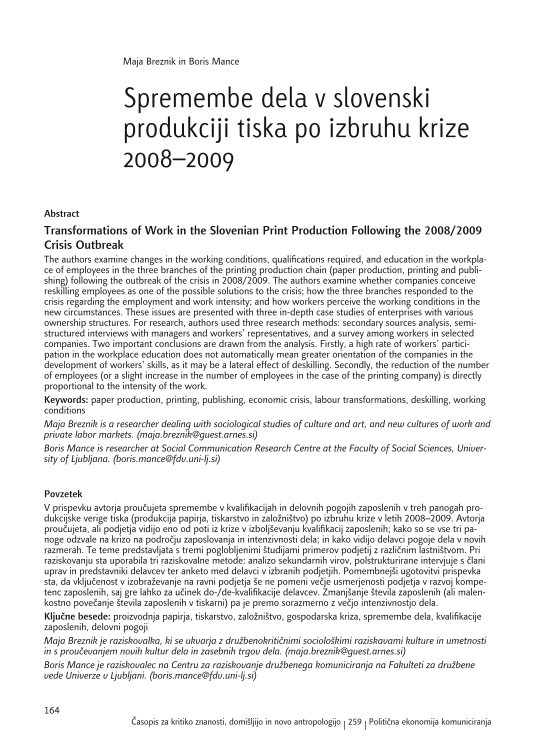The authors examine changes in the working conditions, qualifications required, and education in the workplace of employees in the three branches of the printing production chain (paper production, printing and publishing) following the outbreak of the crisis in 2008/2009. The authors examine whether companies conceive reskilling employees as one of the possible solutions to the crisis; how the three branches responded to the crisis regarding the employment and work intensity; and how workers perceive the working conditions in the new circumstances. These issues are presented with three in-depth case studies of enterprises with various ownership structures. For research, authors used three research methods: secondary sources analysis, semistructured interviews with managers and workers’ representatives, and a survey among workers in selected companies. Two important conclusions are drawn from the analysis. Firstly, a high rate of workers’ participation in the workplace education does not automatically mean greater orientation of the companies in the development of workers’ skills, as it may be a lateral effect of deskilling. Secondly, the reduction of the number of employees (or a slight increase in the number of employees in the case of the printing company) is directly proportional to the intensity of the work.




